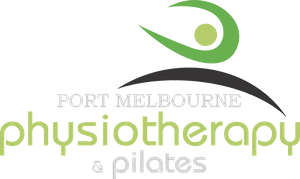What is Pelvic Floor and Continence Physiotherapy?
Pelvic Floor and Continence Physiotherapy is a specialised field of Physiotherapy, aimed at men and women with a vast range of pelvic floor concerns. These can be any of the following:
- Weak or overactive pelvic floor muscles
- Stress urinary incontinence (e.g. I leak when I sneeze)
- Urgency urinary incontinence (e.g. I cannot hold on as long as I used to be able to)
- Pelvic floor training in pregnancy to prevent incontinence during and after pregnancy
- Postpartum pelvic floor check ups
- Return to running and sport/exercise postpartum
- Childbirth injuries and perineal trauma (tears, episiotomies)
- Pelvic organ prolapse
- Chronic pelvic pain
- Incontinence and pelvic floor related issues in athletes
- Coccydinea
- Constipation and defaecation disorders
- Overactive bladder
- Pain with intimacy (Dyspareunia)
- Vulvodynia
- Vaginismus
- Pelvic floor dysfunction pre/post prostate removal surgery (prostatectomy)
- Prostatitis pelvic floor related issues
- Menopause issues
- Pre and post hysterectomy and gynaecological surgery
- Nocturnal enuresis (bed wetting)
This type of Physiotherapy is one of the fastest growing fields of our profession. Previously, men or women with pelvic floor concerns were only offered surgery without any conservative treatment prior. Now, we know that conservative management is highly effective and comparatively low risk.

In this blog, one of our PMPP clients shares her experience with Pelvic Floor Physiotherapist, Julia. We learn what brought her into the clinic, what she gained from her consultations and her recommendations for other women in the same position.
Seeing the Physiotherapist during my pregnancy:
I first saw Julia in late 2019 when, at 25 weeks pregnant with my first baby, I developed stress incontinence. I noticed leakage with coughing, sneezing and laughing which was getting worse as the weeks ticked by. Julia immediately put me at ease as I had never had an internal assessment done by a Physiotherapist. Julia noticed that I had an overactive pelvic floor and gave me some relaxation exercises to start immediately. I found the exercises to be effective and, fortunately, had no further incontinence for the remainder of my pregnancy.
Post-partum:
Following the delivery of my daughter, I suffered a mild-moderate prolapse and significant urinary incontinence. I required an episiotomy (a surgical incision) and forceps (a tool used to guide the baby out the birth canal), which she explained caused trauma to my pelvic floor. I feel grateful that I had done preventative exercise as the damage could potentially have been much worse.
Julia suggested I see my GP for an estrogen cream prescription to help with tissue repair and created a postpartum pelvic floor program. I had a few face to face consults but as we were in the midst of the Covid-19 lockdowns, many of my appointments were over Telehealth. I was, admittedly, skeptical about the efficacy of an appointment via a screen but was pleasantly surprised! In the months following my delivery, I progressed from basic seated exercised all the way through to dynamic high-level exercises.
Exercise guidance:
I also had the goal of returning to running, which Julia was most knowledgeable about. I wanted to be able to run 5km without stopping or having any incontinence. I started really well but the incontinence crept in after a few weeks. In hindsight, this was probably because I wasn’t as diligent with my exercises and had stopped using the estrogen cream. Julia put her thinking cap on and came up with some exercise progressions and a few other ideas. I kept a bladder diary, which helped Julia gauge if there were any other culprits (such as having too many cups of tea, which act as a diuretic or tensing my abdominals due to stress/anxiety).

I’m so grateful for Julia’s guidance and innovation during this time; she really did think outside the square to help me achieve my goal.
If anyone else is considering the role of a Pelvic Floor Physiotherapist in their pregnancy/postpartum journey, I hope this blog gives you some confidence.
~ PMPP client
You may find these other PMPP blogs interesting:

